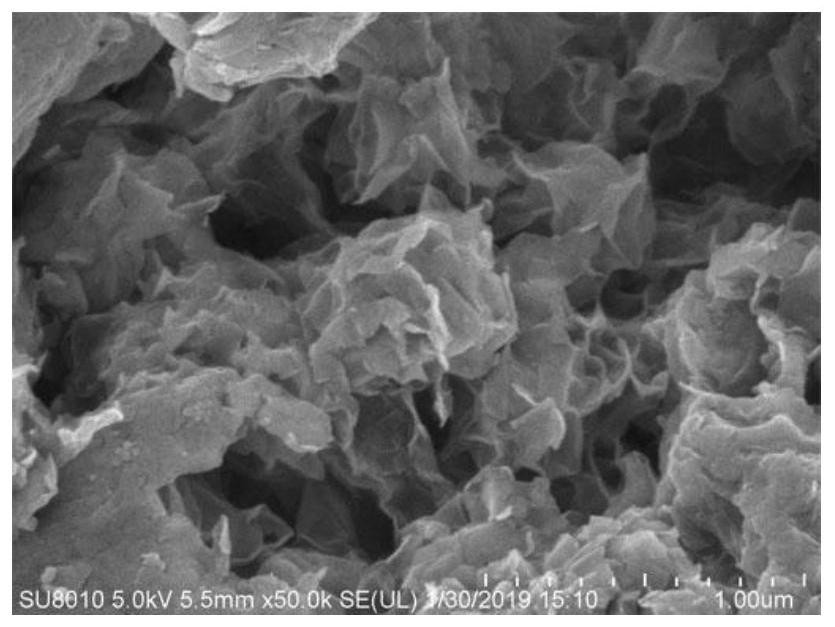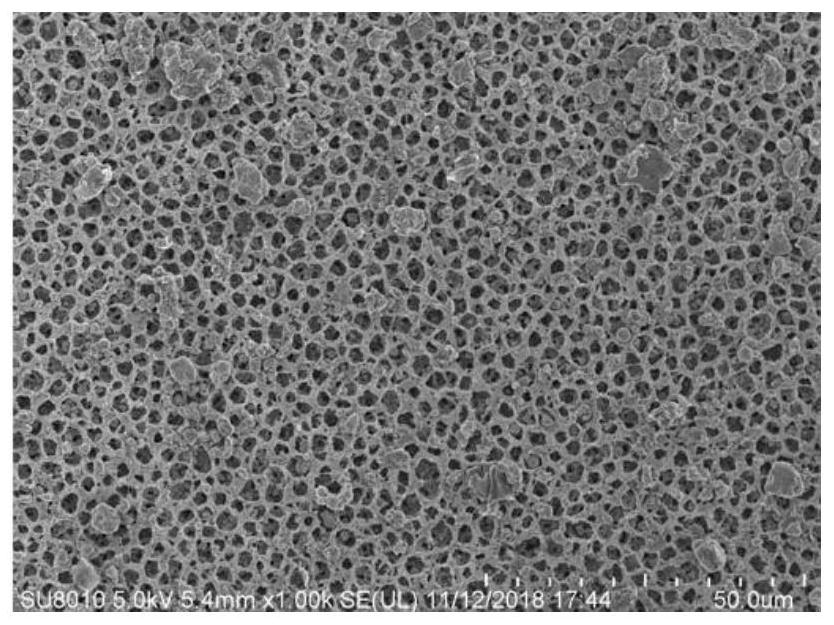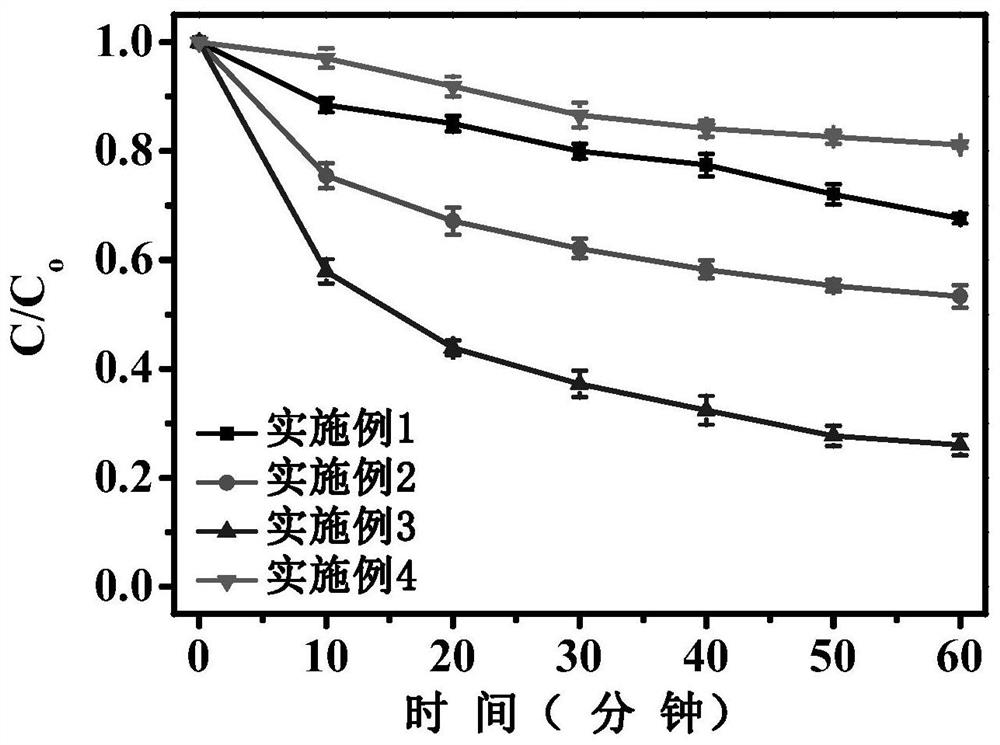Photocatalytic film and its preparation method and application to the degradation of disinfection by-product precursors
A disinfection by-product and photocatalytic membrane technology, applied in the field of photocatalytic degradation, can solve the problems of low utilization rate of sunlight, poor catalytic effect, low reuse rate, etc., to improve photocatalytic activity and facilitate large-scale promotion , the effect of high reuse rate
- Summary
- Abstract
- Description
- Claims
- Application Information
AI Technical Summary
Problems solved by technology
Method used
Image
Examples
Embodiment 1
[0064] (1) Configure 18ml of 10% ethanol aqueous solution, take 2ml of GO concentrated solution and place it in the ethanol solution, and ultrasonically disperse it for 3 hours. At this time, the concentration of GO ethanol solution is 1mg / ml. After centrifuging at a high speed for 15 minutes, take the upper suspension of the centrifuge tube for later use.
[0065] (2) Weigh 0.242g of sodium molybdate and 0.381g of thiourea and dissolve in 12.1ml of the above GO suspension, stir evenly, and disperse by ultrasonic.
[0066] (3) The mixed solution was transferred to a 50ml hydrothermal reaction kettle, heated to 210° C. in a muffle furnace, and the reaction was continued for 24 hours.
[0067] (4) The obtained product is centrifuged and washed 3 times at high speed with deionized water and ethanol to remove excess impurities or organic matter on the surface.
[0068] (5) Dry the product in an oven at 70°C for 12 hours, then grind it in an agate mortar for several times, and fil...
Embodiment 2
[0072] (1) Configure 18ml of 10% ethanol aqueous solution, take 2ml of GO concentrated solution and place it in the ethanol solution, and ultrasonically disperse it for 3 hours. At this time, the concentration of GO ethanol solution is 1mg / ml. After centrifuging at a high speed for 15 minutes, take the upper suspension of the centrifuge tube for later use.
[0073] (2) Weigh 0.242g of sodium molybdate and 0.381g of thiourea and dissolve in 24.2ml of the above GO suspension, stir evenly, and ultrasonically disperse.
[0074](3) The mixed solution was transferred to a 50ml hydrothermal reaction kettle, heated to 210° C. in a muffle furnace, and the reaction was continued for 24 hours.
[0075] (4) The obtained product is centrifuged and washed 3 times at high speed with deionized water and ethanol to remove excess impurities or organic matter on the surface.
[0076] (5) Dry the product in an oven at 70°C for 12 hours, then grind it in an agate mortar for several times, and fil...
Embodiment 3
[0080] The difference from Example 2 is only that the volume of the GO suspension in step (2) is 48.4ml.
PUM
| Property | Measurement | Unit |
|---|---|---|
| particle diameter | aaaaa | aaaaa |
| pore size | aaaaa | aaaaa |
Abstract
Description
Claims
Application Information
 Login to View More
Login to View More - R&D Engineer
- R&D Manager
- IP Professional
- Industry Leading Data Capabilities
- Powerful AI technology
- Patent DNA Extraction
Browse by: Latest US Patents, China's latest patents, Technical Efficacy Thesaurus, Application Domain, Technology Topic, Popular Technical Reports.
© 2024 PatSnap. All rights reserved.Legal|Privacy policy|Modern Slavery Act Transparency Statement|Sitemap|About US| Contact US: help@patsnap.com










